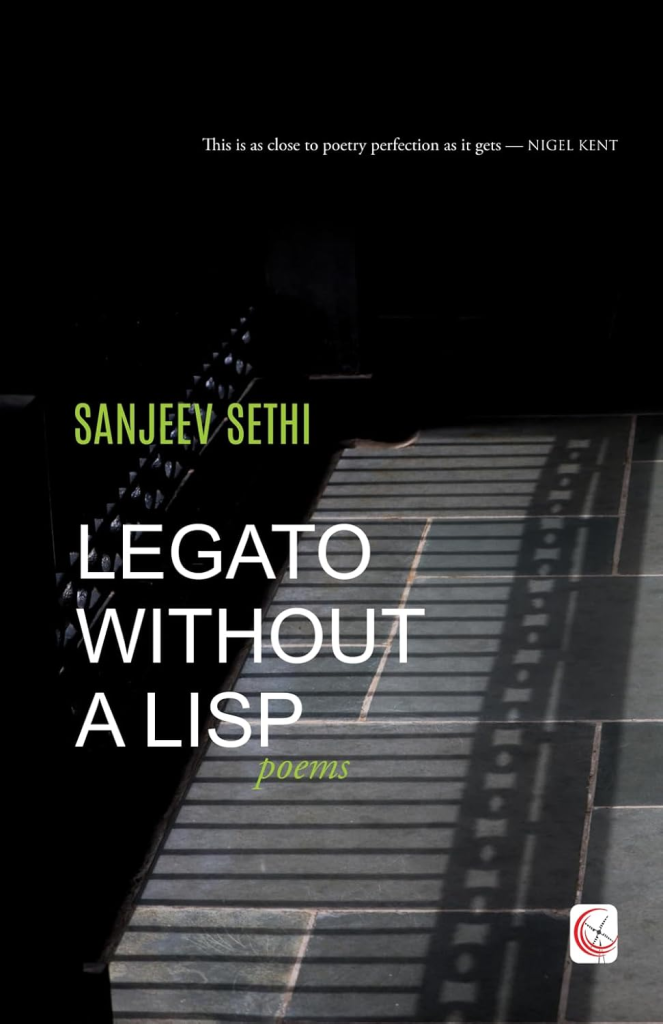BALLATA DEGLI INESISTENTI
Potrei tentare di narrarvi
al suono della mia tastiera
come Baasima morì di lebbra
senza mai raggiunger la frontiera,
o come l’armeno Méroujan
sotto uno sventolio di mezzelune
sentì svanire l’aria dai suoi occhi
buttati via in una fossa comune;
Charlee, che travasata a Brisbane
in cerca di un mondo migliore,
concluse il viaggio
dentro le fauci di un alligatore,
o Aurélio, chiamato Bruna
che dopo otto mesi d’ospedale
morì di aidiesse contratto
a battere su una tangenziale.
Nessuno si ricorderà di Yehoudith,
delle sue labbra rosse carminio,
finite a bere veleni tossici
in un campo di sterminio,
o di Eerikki, dalla barba rossa, che,
sconfitto dalla smania di navigare,
dorme, raschiato dalle orche,
sui fondi d’un qualche mare;
la testa di Sandrine, duchessa
di Borgogna, udì rumor di festa
cadendo dalla lama d’una ghigliottina
in una cesta,
e Daisuke, moderno samurai,
del motore d’un aereo contava i giri
trasumanando un gesto da kamikaze
in harakiri.
Potrei starvi a raccontare
nell’afa d’una notte d’estate
come Iris ed Anthia, bimbe spartane
dacché deformi furono abbandonate,
o come Deendayal schiattò di stenti
imputabile dell’unico reato
di vivere una vita da intoccabile
senza mai essersi ribellato;
Ituha, ragazza indiana,
che, minacciata da un coltello,
finì a danzare con Manitou
nelle anticamere di un bordello,
e Luther, nato nel Lancashire,
che, liberato dal mestiere d’accattone,
fu messo a morire da sua maestà britannica
nelle miniere di carbone.
Chi si ricorderà di Itzayana,
e della sua famiglia massacrata
in un villaggio ai margini del Messico
dall’esercito di Carranza in ritirata,
e chi di Idris, africano ribelle,
tramortito dallo shock e dalle ustioni
mentre, indomito al dominio coloniale,
cercava di rubare un camion di munizioni;
Shahdi, volò alta nel cielo
sulle aste della verde rivoluzione,
atterrando a Teheran, le ali dilaniate
da un colpo di cannone,
e Tikhomir, muratore ceceno,
che rovinò tra i volti indifferenti
a terra dal tetto del Mausoleo
di Lenin, senza commenti.
Questi miei oggetti di racconto
fratti a frammenti di inesistenza
trasmettano suoni distanti
di resistenza.
BALLAD OF THE NON-EXISTENT
I could try to tell you
with the sound of my keyboard
how Baasima died of leprosy
without ever reaching the border,
or how the Armenian Meroujan
under a flutter of half-moons
felt the air in his eyes vanish
thrown into a mass grave;
Charlee, who moved to Brisbane
in search of a better world,
ends the journey
in the mouth of an alligator,
or Aurelio, named Bruna
who, after eight months in hospital
died of AIDS contracted
to hit a ring road.
Nobody will remember Yehoudith,
her lips carmine red,
erased by drinking toxic poisons
in an extermination camp,
or Eerikki, with his red beard,
defeated by the turbulence of the waves,
who sleeps, scoured by orcas,
on the bottom of some sea;
the head of Sandrine, Duchess
of Burgundy heard the rumour of the feast
as it fell from the blade of a guillotine
into a basket
and Daisuke, modern samurai,
counted the revolutions of a plane’s engine
transhumanizing a kamikaze gesture into harakiri.
I could go on and on
in the stifling heat of a summer night
how Iris and Anthia, deformed Spartan children
were abandoned,
or how Deendayal died of deprivation
attributable to the single crime
of living the life of an outcast
without ever having rebelled;
Ituha, an Indian girl,
threatened with a knife,
who ends up dancing with Manitou
in the anteroom of a brothel
and Luther, born in Lancashire
freed from the profession of beggar
and forced to die by His Britannic Majesty
in the coal mines.
Who will remember Itzayana
and her family massacred
in a village on the outskirts of Mexico
by Carranza’s retreating army,
and what of Idris, the African rebel,
stunned by shocks and burns
while untamed by colonial domination,
he tried to steal an ammunition truck;
Shahdi flew high into the sky
above the flagpoles of the Green Revolution,
landing in Tehran with his wings torn apart
by a cannon shot,
and Tikhomir, a Chechen bricklayer,
that fell among the indifferent faces
to the ground from the roof of Lenin’s Mausoleum,
without comment.
From objects of narrative
fractured into fragments of non-existence
transmits distant sounds
of resistance.
LA BALLATA DI PEGGY E PEDRO
La ballata di Peggy e Pedro è latrata dai punkabbestia
di Ponte Garibaldi, con un misto d’odio e disperazione,
insegnandoci, intimi nessi tra geometria ed amore,
ad amare come fossimo matematici circondati da cani randagi.
Peggy eri ubriaca, stato d’animo normale,
nelle baraccopoli lungo l’alveo del Tevere,
e l’alcool, nelle sere d’Agosto, non riscalda,
obnubilando ogni senso in sogni annichilenti,
trasformando ogni frase biascicata in fucilate nella schiena
contro corazze disciolte dalla calura estiva.
Sdraiata sui bordi del muraglione del ponte,
tra i drop out della Roma città aperta,
apristi il tuo cuore all’insulto gratuito di Pedro,
tuo amante, e, basculandoti, cadesti nel vuoto,
disegnando traiettorie gravitazionali dal cielo al cemento.
Pedro, non eri ubriaco, ad un giorno di distanza,
non eri ubriaco, stato d’animo anormale,
nelle baraccopoli lungo l’alveo del Tevere,
o nelle serate vuote della movida milanese,
essendo intento a spiegare a cani e barboni
una curiosa lezione di geometria non euclidea.
Salito sui bordi del muraglione del ponte,
nell’indifferenza abulica dei tuoi scolari distratti,
saltasti, in cerca della stessa traiettoria d’amore,
dello stesso tragitto fatale alla tua Peggy,
atterrando, sul cemento, nello stesso istante.
I punkabbestia di Ponte Garibaldi, sgomberati dall’autorità locale,
diffonderanno in ogni baraccopoli del mondo la lezione surreale
imperniata sulla sbalorditiva idea
che l’amore sia un affare di geometria non euclidea.
THE BALLAD OF PEGGY AND PEDRO
The ballad of Peggy and Pedro barked out by the punkbestials
of the Garibaldi Bridge, with a mixture of hatred and despair,
teaches us the intimate relationship between geometry and love,
to love as if we were maths surrounded by stray dogs.
Peggy you were drunk, normal mood,
in the slums along the bed of the Tiber
and alcohol, on August evenings, doesn’t warm you up,
clouding every sense in annihilating dreams,
transforming every chewed-up sentence into a gunfight in the back
on armour dissolved by the summer heat.
Lying on the edges of the bridge’s ledges,
among the drop-outs of the Rome open city,
you opened your heart to the gratuitous insult of Pedro,
your lover, and toppled over, falling into the void,
drawing gravitational trajectories from the sky to the cement.
Pedro wasn’t drunk, a day’s journey away,
you weren’t drunk, abnormal state of mind,
in the slums along the bed of the Tiber,
or in the empty parties of Milan’s movida,
with the intention of explaining to dogs and tramps
a curious lesson of non-Euclidean geometry.
Mounted on the edge of the bridge,
in the apathetic indifference of your distracted pupils,
you jumped, in the same trajectory of love,
along the same fatal path as your Peggy,
landing on the cement at the same instant.
The punkbestials of the Garibaldi Bridge, cleared by the local authority,
will spread a surreal lesson to every slum in the world
centred on the astonishing idea
that love is a matter of non-Euclidean geometry.
NON RIESCO AD INTEGRARMI
Non riesco a integrarmi, ho un disturbo borderline
distribuisco gomitate tipo Greg “The Hammer” Valentine,
nemmeno se mi impegno riuscirò a aspirare al Nobel
deutoplasma irriducibile tra vacche nere d’Hegel.
Non riesco a integrarmi, ho un delirio schizofrenico
rifuggo dalle masse e intingo biro nell’arsenico,
canto, fuori dal coro, come un mitomane a X Factor
disinnescando bombe, spaccio col metal-detector.
Non riesco a integrarmi, ho attitudini da killer,
deambulo tra zombie, stile King of Pop in Thriller,
volando a bassa quota quoto quote di quozienti,
costretto a impacchettare sottotitoli per non-utenti.
Non riesco a integrarmi, ho ogni sorta di fobia
in coda appetisco il verde, come un virtuoso in dendrofilia,
mettendo a fuoco il mondo e sfuocati i tempi con lo zoom,
mi arrendo alla desuetudine della consecutio temporum.
I DON’T FIT IN
I don’t fit in, I have a borderline personality disorder
I give out elbows like Greg ‘The Hammer’ Valentine,
if I don’t apply myself I’ll never be able to aspire to the Nobel Prize
irreducible deutoplasma among Hegel’s black cows.
I don’t fit in, i have a schizophrenic delusion
i hate the people and dip my pen in arsenic,
i sing, outside the choir, like an X Factor mythomaniac
defusing bombs and dealing with a metal detector.
I don’t fit in, i’ve got a killer’s disposition,
i wander between the zombies, style King of Pop in Thriller,
flying at low altitude I quote quotes of quotients,
forced to pack subtitles for non-users.
I don’t fit in, i have all sorts of phobias,
in the queue i crave the green, like a virtuous dendrophile,
setting the world on fire, blurring time with the zoom,
i surrender myself to the obsolescence of consecutio temporum.
Ivan Pozzoni è nato a Monza nel 1976. Ha introdotto in Italia la materia della Law and Literature. Ha diffuso saggi su filosofi italiani e su etica e teoria del diritto del mondo antico; ha collaborato con con numerose riviste italiane e internazionali. Tra 2007 e 2018 sono uscite varie sue raccolte di versi: Underground e Riserva Indiana, con A&B Editrice, Versi Introversi, Mostri, Galata morente, Carmina non dant damen, Scarti di magazzino, Qui gli austriaci sono più severi dei Borboni, Cherchez la troika e La malattia invettiva con Limina Mentis, Lame da rasoi, con Joker, Il Guastatore, con Cleup, Patroclo non deve morire, con deComporre Edizioni. È stato fondatore e direttore della rivista letteraria Il Guastatore – Quaderni «neon»-avanguardisti; è stato fondatore e direttore della rivista letteraria L’Arrivista; è stato direttore esecutivo della rivista filosofica internazionale Información Filosófica; è, o è stato, direttore delle collane Esprit (Limina Mentis), Nidaba (Gilgamesh Edizioni) e Fuzzy (deComporre). Ha fondato una quindicina di case editrici socialiste autogestite. Ha scritto/curato 150 volumi, scritto 1000 saggi, fondato un movimento d’avanguardia (NeoN-avanguardismo, approvato da Zygmunt Bauman), con mille movimentisti, e steso un Anti-Manifesto NeoN-Avanguardista, È menzionato nei maggiori manuali universitari di storia della letteratura, storiografia filosofica e nei maggiori volumi di critica letteraria.Il suo volume La malattia invettiva vince Raduga, menzione della critica al Montano e allo Strega. Viene inserito nell’Atlante dei poeti italiani contemporanei dell’Università di Bologna ed è inserito molteplici volte nella maggiore rivista internazionale di letteratura, Gradiva.I suoi versi sono tradotti in francese, inglese e spagnolo. Nel 2024, dopo sei anni di ritiro totale allo studio accademico, rientra nel mondo artistico italiano e fonda il collettivo NSEAE (Nuova socio/etno/antropologia estetica).
Ivan Pozzoni was born in Monza in 1976. He introduced Law and Literature in Italy and the publication of essays on Italian philosophers and on the ethics and juridical theory of the ancient world; He collaborated with several Italian and international magazines. Between 2007 and 2018, different versions of the books were published: Underground and Riserva Indiana, with A&B Editrice, Versi Introversi, Mostri, Galata morente, Carmina non dant damen, Scarti di magazzino, Here the Austrians are more severe than the Bourbons, Cherchez the troika. et The Invective Disease with Limina Mentis,Lame da rasoi, with Joker, Il Guastatore, with Cleup, Patroclo non deve morire, with deComporre Edizioni. He was the founder and director of the literary magazine Il Guastatore – «neon»-avant-garde notebooks; he was the founder and director of the literary magazine L’Arrivista; he is the editor and chef of the international philosophical magazine Información Filosófica; he is, or has been, creator of the series Esprit (Limina Mentis), Nidaba (Gilgamesh Edizioni) and Fuzzy (deComporre). It contains a fortnight of autogérées socialistes edition houses. He wrote 150 volumes, wrote 1000 essays, founded an avant-garde movement (NéoN-avant-gardisme, approved by Zygmunt Bauman), with a millier of movements, and wrote an Anti-manifesto NéoN-Avant-gardiste. This is mentioned in the main university manuals of literature history, philosophical history and in the main volumes of literary criticism. His book La malattia invettiva wins Raduga, mention of the critique of Montano et Strega. He is included in the Atlas of contemporary Italian poets of the University of Bologne and figures à plusieurs reprized in the great international literature review of Gradiva. His verses are translated into French, English and Spanish. In 2024, after six years of total retrait of academic studies, he return to the Italian artistic world and melts the NSEAE Kolektivne (New socio/ethno/aesthetic anthropology).




